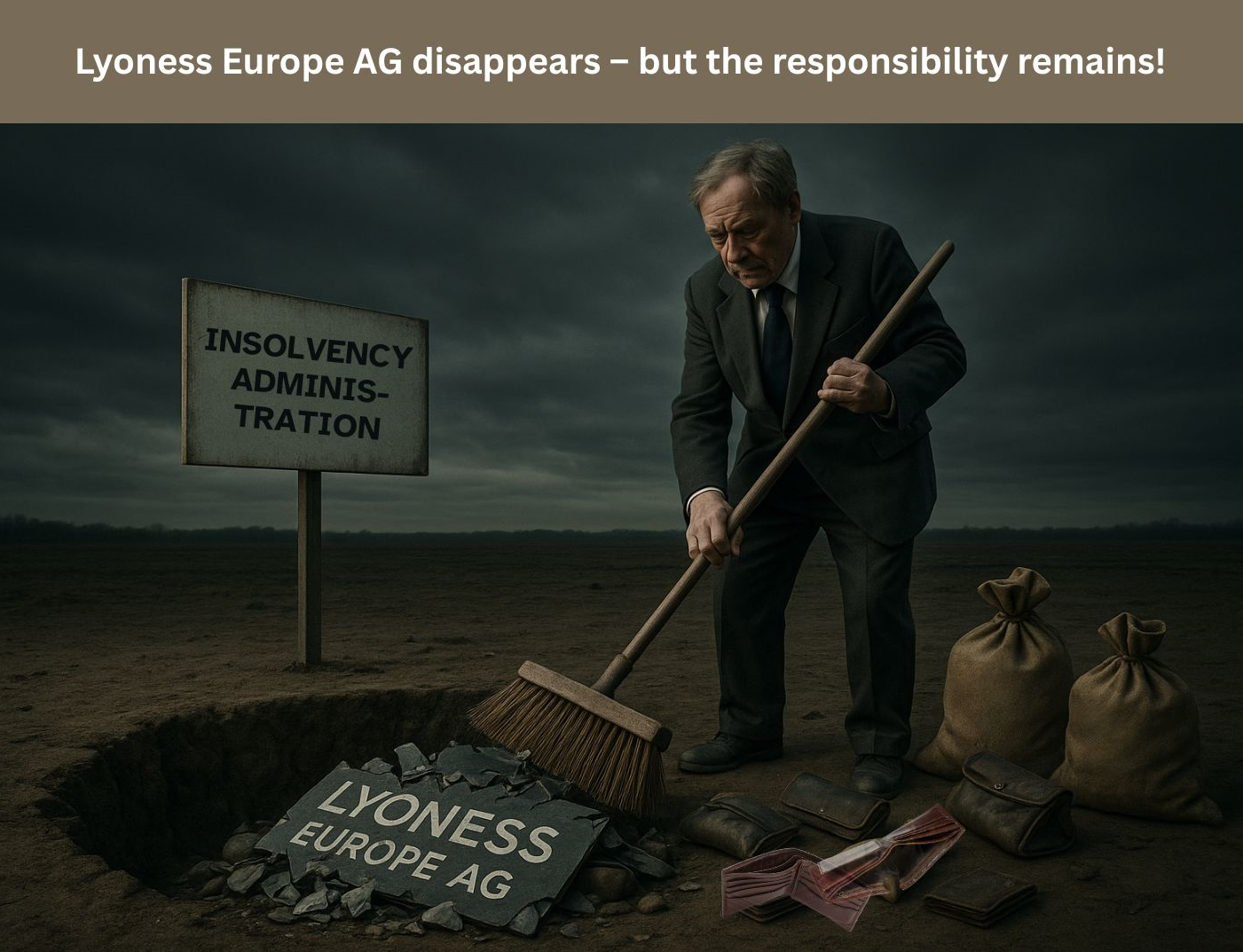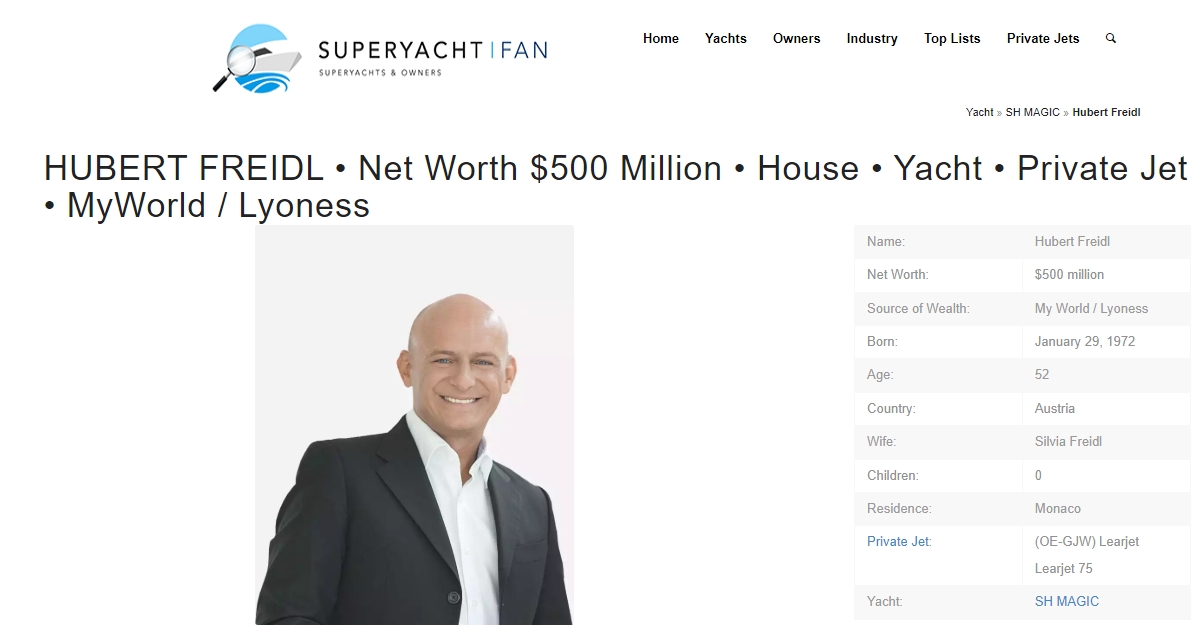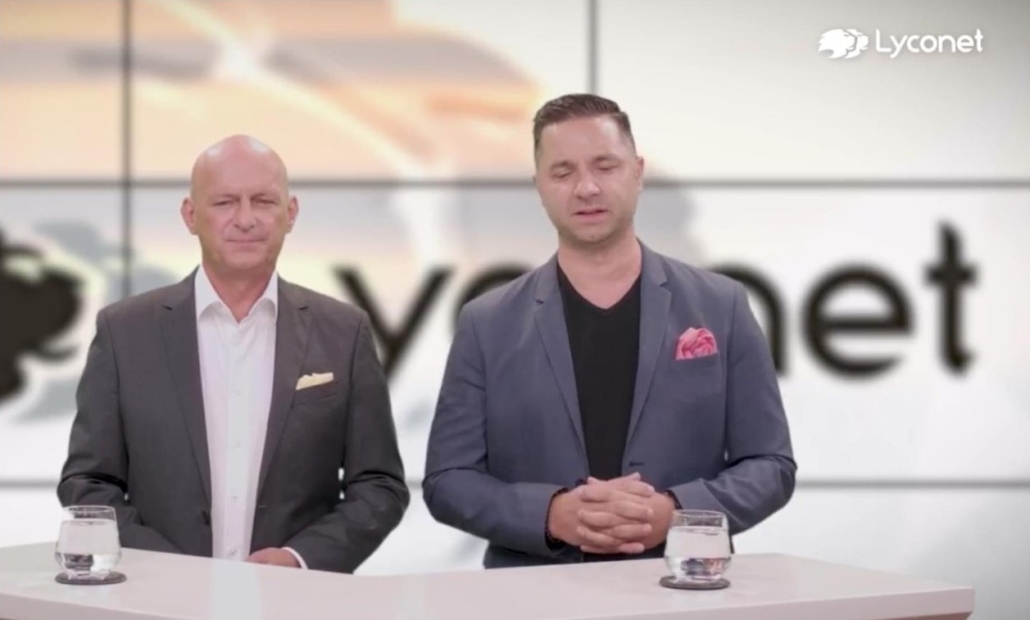The quiet demise of Lyoness Europe AG – and the responsibility of its management.
Buchs SG – What remains of the once globally operating shopping network ‘Lyoness’? A sober entry in the Swiss Commercial Gazette. On 30 April 2025, bankruptcy proceedings against LYONESS EUROPE AG in Buchs (Canton of St. Gallen) were discontinued by the bankruptcy judge of the Werdenberg-Sarganserland District Court ‘due to lack of assets’. The company has no assets, the proceedings have been discontinued and there will be no ordinary liquidation. For many creditors and critics, this is not only a legal conclusion, but also a symbolic low point in the history of a corporation that has been under suspicion of illegal multi-level marketing for years.
A company disappears – the responsibility remains
The liquidation of a public limited company does not mean the end of the responsibility of its managers. On the contrary: especially when bankruptcy occurs due to lack of assets, i.e. without funds for creditors or legal costs, the question arises as to whether the former board members and managing directors have fulfilled their legal obligations.
According to Article 754 of the Swiss Code of Obligations, the organs of a public limited company are personally liable if they have violated their duties of care – for example, by delaying the filing for insolvency, disregarding over-indebtedness rules (Article 725 CO), keeping inadequate accounts or disadvantaging creditors. The total economic loss for creditors may therefore result in civil law claims for damages against the former decision-makers, if necessary from their private assets.
Lyconet and myWorld: legal successors or just ‘rebranding’?
While LYONESS EUROPE AG is now officially being wound up, its business model and structures have long since been transferred to other companies: Lyconet acts as a marketing organisation through which so-called ‘marketers’ are supposed to recruit new partners. myWorld acts as the operator of the platform through which cashback promises are allegedly realised, with international expansion, large marketing events and eye-catching rhetoric.
For many lawyers, Lyconet and myWorld are the de facto successors to the original Lyoness structure. There are also several court rulings that hold Lyconet/myWorld responsible as successor companies. The continuity is evident not only in the personnel, with many leading figures from the Lyoness era now holding senior positions in the successor companies, but also in the business model: the focus remains on recruiting new partners, and transparency regarding earnings, payouts and actual cashback payments remains limited.
Key figures in focus: Hubert Freidl and Mario Kapun
Austrian entrepreneur Hubert Freidl is considered the founder and international head of the Lyoness Group. Over many years, he built up and managed the system of cashback promises, membership fees and referral commissions. At the operational level, Mario Kapun was CEO and member of the administrative board of LYONESS EUROPE AG for a long time, according to the commercial register until 2023.
Both individuals have already faced sanctions, some of them severe, in various countries. For example, Austrian, Italian and German authorities have declared Lyoness’ business model to be an illegal pyramid scheme in several proceedings. Lyoness was banned in Norway in 2018. The German Federal Financial Supervisory Authority (BaFin) is also investigating the business model with regard to unauthorised deposits.
Conclusion: A public limited company disappears – the shadow remains
The bankruptcy of LYONESS EUROPE AG is no ordinary company collapse. It marks the end of a long history full of legal controversies, warnings from supervisory authorities and disappointed sales partners. With the cessation of business due to lack of assets, not only is an economic mess left behind, but also a multitude of unanswered questions, particularly for Hubert Freidl and Mario Kapun.
Note: As always, those affected are welcome to comment, or if anyone has more or different information, they are welcome to share it with us. We are not interested in making false claims and our primary goal remains to provide complete documentation.
This article is intended solely for information, journalistic analysis and independent opinion-forming within the meaning of Article 5 of the German Basic Law and Section 51 of the German Copyright Act (UrhG) (right to quote). All information is based on publicly available sources, official communications and careful editorial research. Despite the utmost care, we cannot guarantee the accuracy, completeness or timeliness of the information contained herein.
The mention of companies, persons or projects is based on verifiable research and clearly identified expressions of opinion. Publication is protected by the constitutionally guaranteed freedom of the press. Contributing sources are subject to editorial source protection in accordance with journalistic standards.




Leave a Reply
Want to join the discussion?Feel free to contribute!